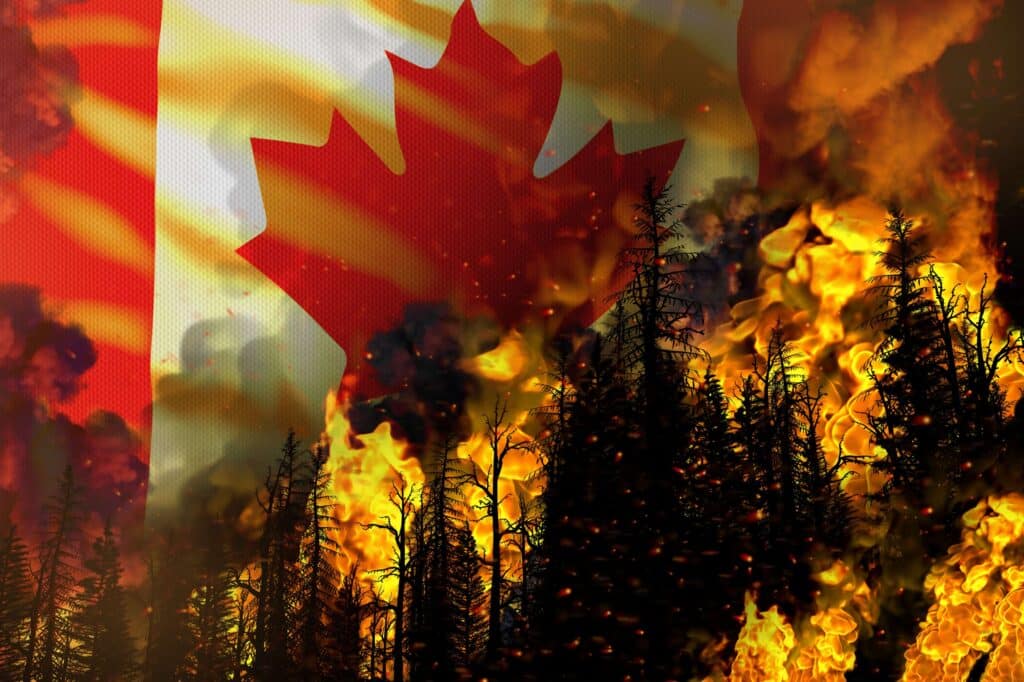Global forests experienced a significant reduction in their ability to absorb carbon last year, with a team of international researchers revealing that forests, plants, and soil—as a net category—absorbed almost no carbon.
That is according to a team of experts from Tsinghua University and the University of Exter, who have together published ‘Low latency carbon budget analysis reveals a large’ – a preliminary estimate that revealed that the global land carbon sink, mainly driven by forests, absorbed just 0.44 GtC (gigatonnes of carbon)—far below 2.04 GtC per year, the average recorded between 2010 and 2022.
Together, they reveal that the drastic reduction in carbon absorption is directly tied to wildfires and droughts that have devastated regions across Russia, Canada, and the Amazon.
Why are the world’s forests burning?
Last week, Wood Central revealed that higher radiation numbers in the Arctic Circle are linked to fires that burned in the Chornobyl exclusion zone. By late September 2024, fires had burned close to 12.8 million hectares in Russia, with over half of that area—or 8.1 million hectares—in heavily forested areas.
Despite fewer fires than during record fire years, the area affected in 2024 is still 10% higher than the average annual burn area for the last 15 years. These fires significantly diminished Russia’s forests’ ability to absorb CO2, adding to the decline in global carbon absorption.

That includes Canada’s boreal forests, which have experienced record-breaking wildfires, releasing between 0.48 and 0.68 GtC back into the atmosphere. At the same time, the Amazon faced a severe drought – resulting in carbon losses of 0.31 GtC. Together, these events contributed to halving carbon absorption in the Northern Hemisphere, a critical region for mitigating global emissions.
Extreme levels of heat and drought prevent forests from acting as carbon sinks.
The research team, which included leading scientists Philippe Ciais from the French Laboratory of Climate and Environmental Sciences, Pierre Friedlingstein from the University of Exeter, and Piyu Ke from Tsinghua University, studied the decline in forest carbon absorption. They highlight the unprecedented impact of extreme heat and drought on forests’ ability to act as carbon sinks. Forests in Southeast Asia, Russia, and Africa experienced sharp declines in their carbon uptake, contributing to the collapse of the global land carbon sink.
“Extreme heat in 2023 had a devastating effect on terrestrial ecosystems, underscoring the need for urgent action to restore forests and reduce fossil fuel emissions.”
Philippe Ciais from the French Laboratory of Climate and Environmental Sciences
The findings also raise alarms about the reliability of climate models, which often assume that forests will continue to absorb a large portion of human emissions. However, the rapid weakening of carbon sinks could accelerate global heating and complicate efforts to achieve international climate goals.
“Without significant restoration efforts and stronger protection of the world’s forests, scientists warn that these critical ecosystems may not recover their carbon-absorbing capacity, further exacerbating the climate crisis,” they said.
- To learn more about the research, click here to read the preliminary report in full.






